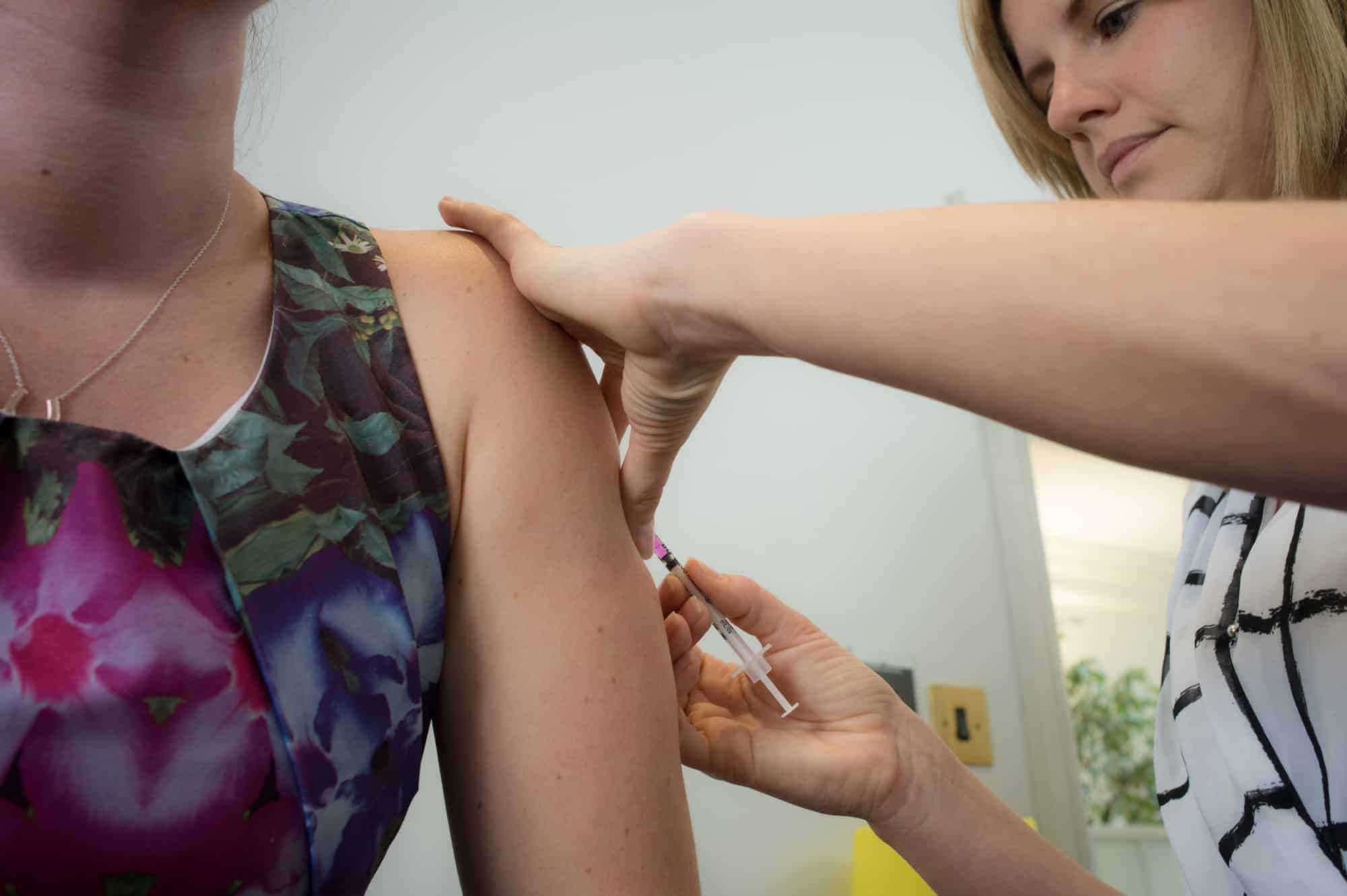Tag: vaccine shortage
At present, there is currently a shortage of Hepatitis B vaccine available in the United Kingdom and across the world.
Despite current global shortages, Fleet Street Clinic maintains good stock levels of the Hepatitis B vaccine.
The Hepatitis B virus is one of the most prevalent blood-borne viruses worldwide and is a major cause of chronic liver disease and liver cancer. In the majority of cases, Hepatitis B is asymptomatic – without symptoms. It is easily preventable through vaccination, and we strongly believe this vaccine should be offered more widely – all young, sexually active adults ought to be protected.
Although the overall risk for travellers is low, Hepatitis B immunisation is recommended for travellers travelling to East Asia and Sub Saharan Africa where between 5 – 10 % of the adult population is estimated to have persistent Hepatitis B infection. High rates of infection are also found in the Amazon, southern parts of eastern and central Europe, the Middle East and Indian subcontinents. The risk understandable increases for long-stay travellers in high-risk areas.
Certain behaviours and activities put individuals at higher risk, such as unprotected sex, adventure sports, body piercing, tattoos and injected drug usage.
Receiving medical or dental care in high-risk countries will also increase your risk and it is advised to avoid unless absolutely necessary. Travellers who have pre-existing conditions which may make it more likely for them to need medical attention should definitely consider the Hepatitis vaccination prior to travelling.
Public Health England has implemented emergency measures to ensure the Hepatitis B vaccine is protected for those who need it most, due to severe shortages in the supply of the vaccine.
The UK is a low-risk country for Hepatitis B those most at risk are babies. The Hepatitis B vaccination has recently been added to the standard NHS immunisation schedule, which is not affected by the current shortage.
Individuals can reduce their risk of contracting hepatitis B through avoiding unprotected sex and injecting drugs, avoiding getting tattoos, piercings or acupuncture when overseas, and avoiding medical or dental care in high risk countries unless absolutely necessary.
A spokesperson for Public Health England said “We think there will be shortages until early 2018 so we are urging people to make sure they are taking the right precautions while the shortage is ongoing.”
For all those needing vaccination and immunisation support, Fleet Street Clinic offers expert travel advice, occupational health assessments and a dedicated vaccination clinic with expert medics for all those needing vaccination and immunisation support.
Our Travel Clinic can provide you with all the vaccines you need.
All of our travel and wellness vaccination appointments are available to book online.
HEPATITIS A and Hepatitis B VACCINES AT FLEET STREET CLINIC LONDON
Although Hepatitis A and Hepatitis B vaccinations are currently in short supply in the UK and globally, Fleet Street Clinic is committed to maintaining the stock of all vaccines and currently has a good supply of both.
Hepatitis A
Hepatitis A is a viral infection that is spread through food and water contaminated with the virus. It occurs world wide including Central and South America, Africa, Eastern Europe, Middle-East, Asia, and the Indian Subcontinent.
Hepatitis A affects the liver causing jaundice, and whilst most people make a full recovery, it can result in chronic liver disease and be fatal.
HEPATITIS A VACCINATION
Hepatitis A is easily preventable through vaccination, and there are several types of vaccination available in the UK that offer protection. The vaccination is available to adults and children over the age of 1 year. It can be given alone (Avaxim, Vaqta) or in combination with typhoid (Viatim), whereby a single injection provides protection for 12 months. A second injection given 6 months later will provide 25 years of protection against Hepatitis A.
The vaccination is available to adults and children over the age of 1 year. It can be given alone (Avaxim, Vaqta) or in combination with typhoid (Viatim), whereby a single injection provides protection for 12 months. A second injection given 6 months later will afford 25 years of protection against Hepatitis A.
It is also possible to receive Hepatitis A in combination with Hepatitis B (TwinRix or Ambirix) whereby 2 or 3 doses of the vaccination can be given between 3 weeks or 6 months.
In addition to the vaccination, travellers should exercise caution with food and water by:-
- Ensuring all food is cooked thoroughly and served hot
- Sticking to bottled water only with a seal or boiled water– no tap water
- Avoiding ice
- Only consuming fruit that can be peeled or sliced without contamination (such as bananas)
- Avoiding high-risk food such as shellfish, raw or rare meat, salad, buffet food, reheated food
HEPATITIS B
- Hepatitis B is a viral infection spread by contaminated blood and bodily fluids.
- 350 million people worldwide are carriers of the Hepatitis B virus.
- The highest risk countries for Hepatitis B infection are central, western and southern Africa and south-east Asia.
- Chronic infection with Hepatitis B can cause liver disease and liver cancer.
Hepatitis B is contracted through contact with infected blood or bodily fluids. These can include:
- Mother to baby transmission at the time of birth
- Unprotected sexual intercourse
- Through contaminated blood products (such as unscreened blood transfusion)
- Contaminated medical equipment (such as needles and syringes)
- Contaminated tattoo or body piercing equipment
- Through contaminated needles and syringes from injecting drug use
VACCINATION AGAINST HEPATITIS B IS ADVISED FOR:
- Those who are at occupational risk (such as health care workers, aid workers where their job puts them at risk of injury)
- Travellers who visit high-risk areas, or those who travel frequently or for longer periods
- Travellers who have pre-existing conditions whereby their condition may make it more likely for them to need medical attention
- Travellers who carry out activities associated with risk (adventure sports, body piercing, tattoos)
- Those who participate in lifestyle behaviours that may increase the risk (such as, unprotected sex and injecting drug use)
A Hepatitis B vaccine is available and can be given from birth. It requires a primary course of 3 vaccinations to be given over a 6 month period (0, 1 months, 6 months) with a booster dose given 5 years later. Those who require the vaccinations to be given more quickly, such as last-minute travellers, can receive the primary course over a shortened 3 week period. Hepatitis B can also be given in combination with Hepatitis A when protection against both diseases is required. TwinRix is available for both adults and children and adheres to the vaccination schedule outlined above. Ambirix is licenced for children under the age of 15 years and requires 2 doses 6 months apart.





